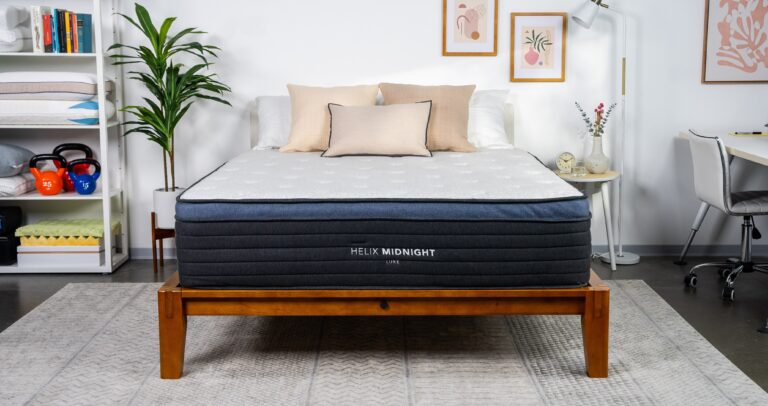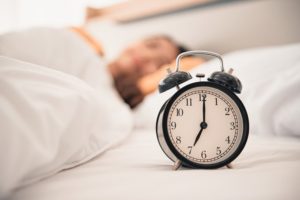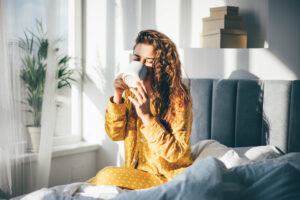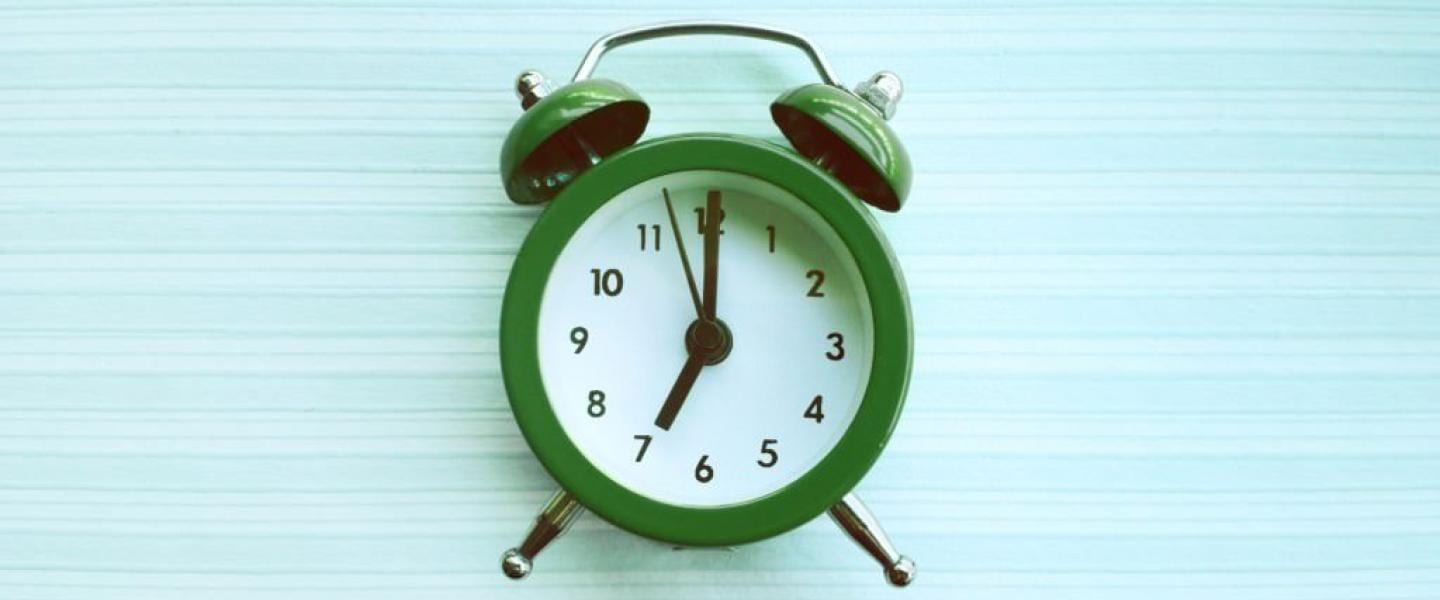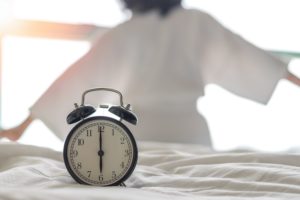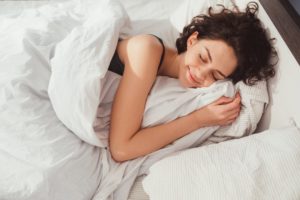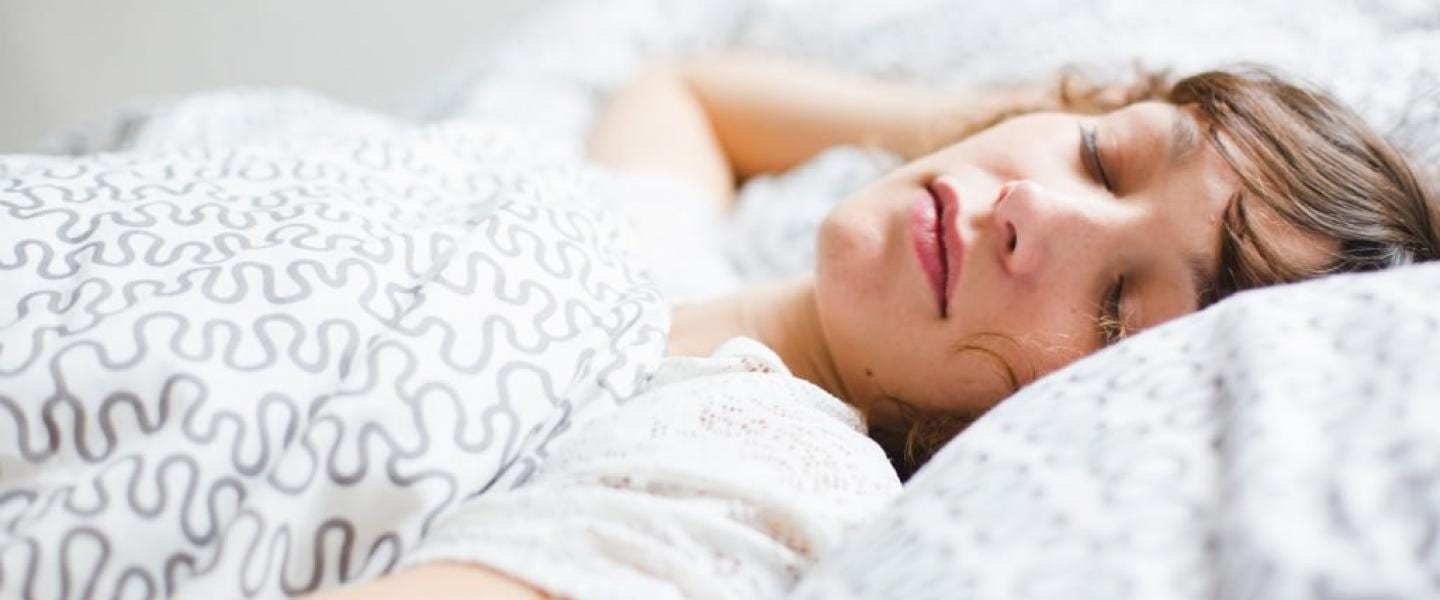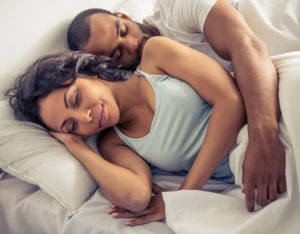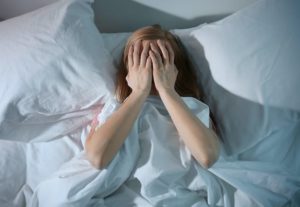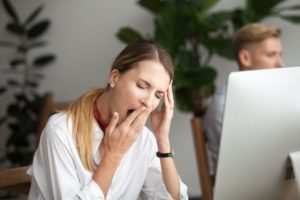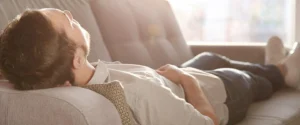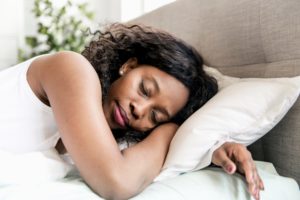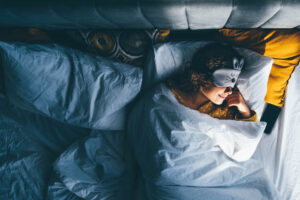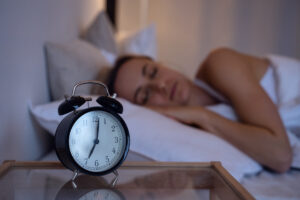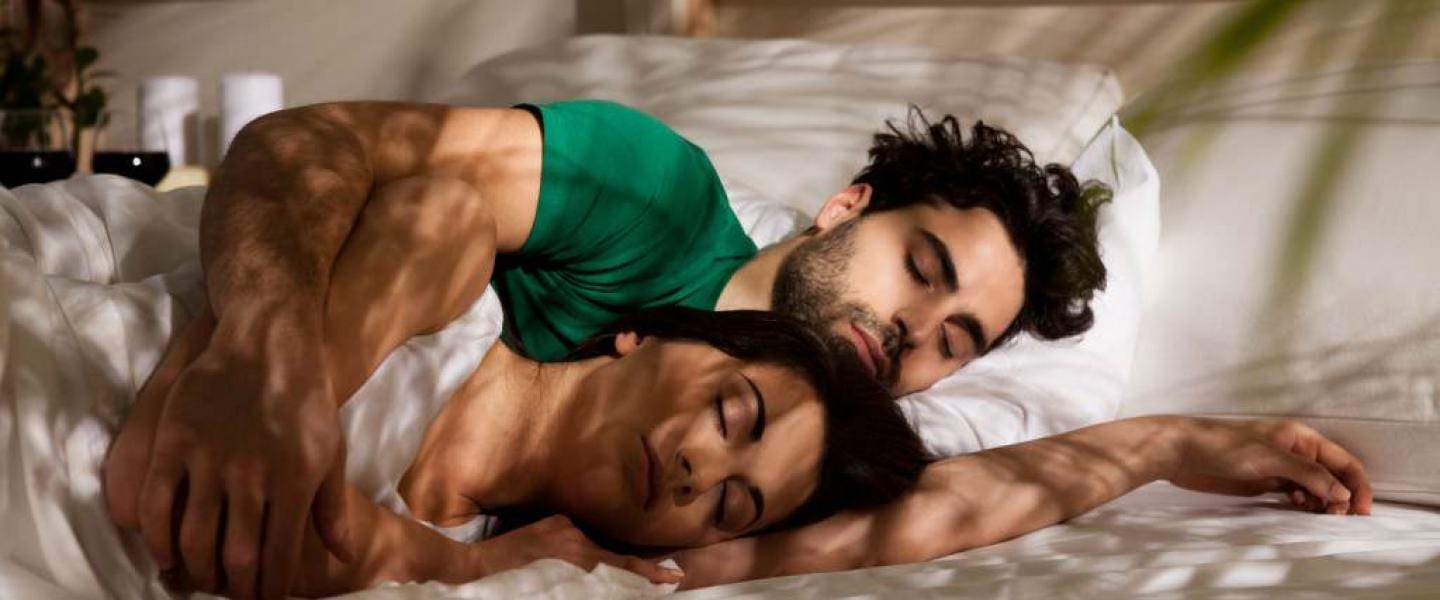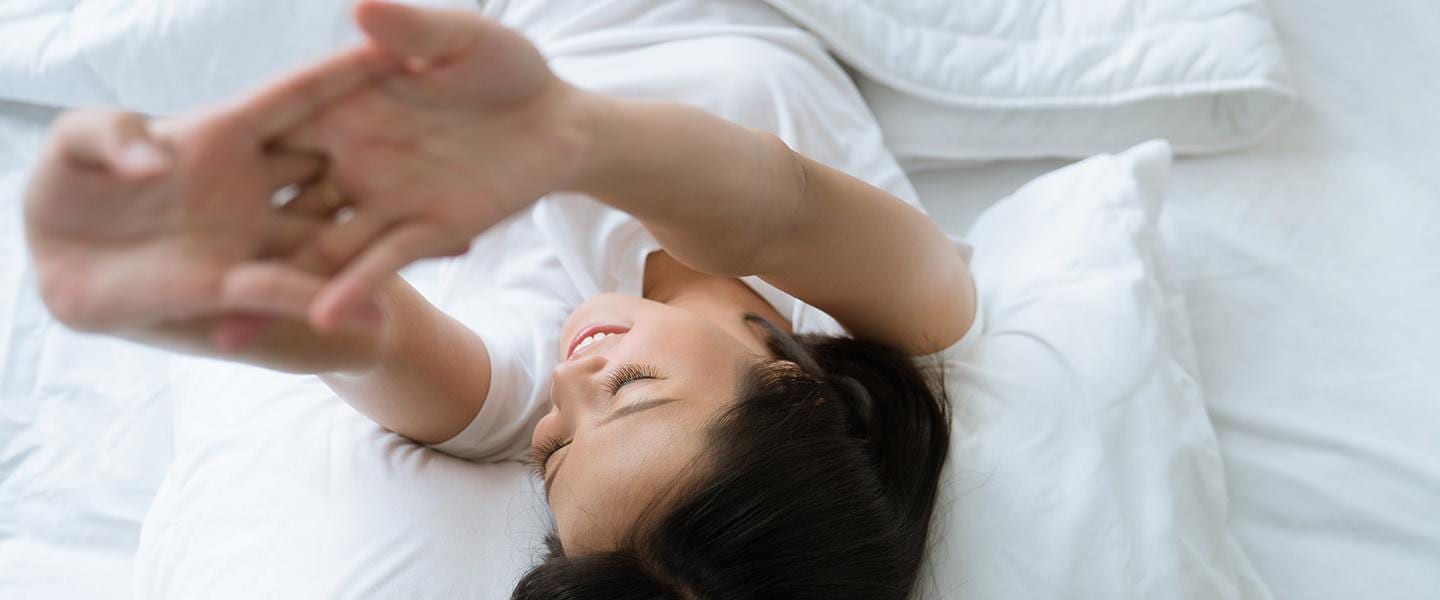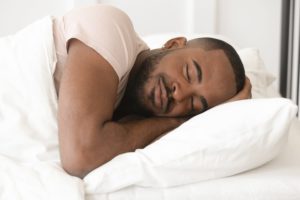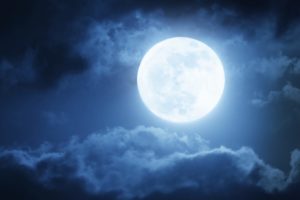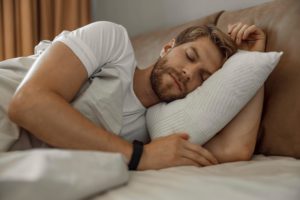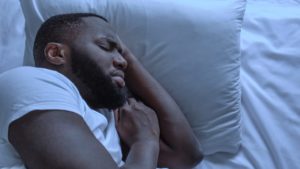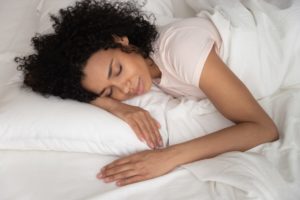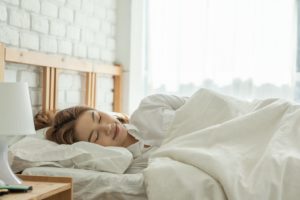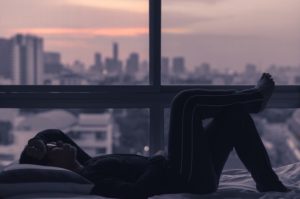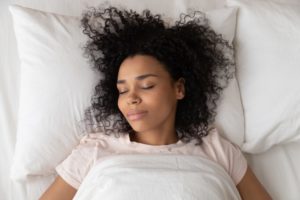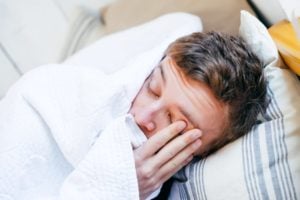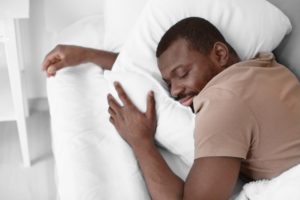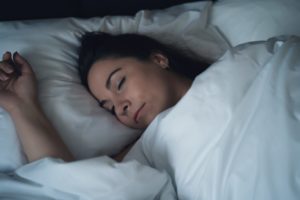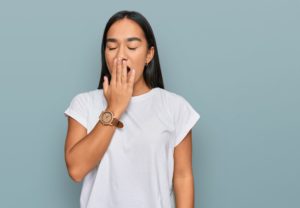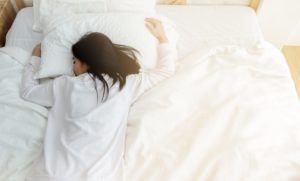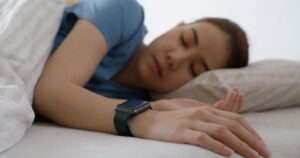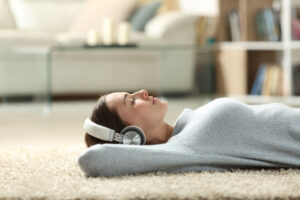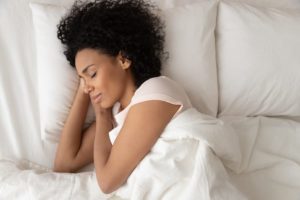When you buy through our links, we may earn a commission. Products or services may be offered by an affiliated entity. Learn more.
Short Sleepers
The brain and body need sleep in order to function properly. For this reason, sleep experts advise against sleeping less than seven hours per night. Without at least this much sleep, it is normal to be groggy and prone to impaired mental performance during the day. But, a small group of people tend to sleep six hours or fewer per night and still wake up refreshed and energetic. As a result, they may be known as natural short sleepers or true short sleepers.
Research is ongoing, but sleep scientists have evidence that natural short sleepers have genetic variations that reduce their biological need for sleep. While sometimes called short sleep syndrome, there is no evidence that natural short sleepers suffer health complications from sleeping less.
What Does It Mean to Be a Short Sleeper?
A natural short sleeper is a person who tends to sleep less than six hours per night, even when they have more available time to sleep. In this way, natural short sleepers differ from people who sleep less than six hours because of a condition, like insomnia, or a lack of time in their schedule for sleep. Unlike people who experience sleep deprivation when they fall short on sleep, natural short sleepers tend not to feel sleepy or tired throughout the day.
Most people who are natural short sleepers need less sleep than others do throughout their entire lifespan.
Signs of Being a Short Sleeper
Common characteristics of natural short sleepers include:
- Routinely sleeping between four and six hours per night
- Sleeping less than six hours, even when there is more time available to sleep
- Sleeping less than six hours without setting an alarm or otherwise restricting sleep time
- Waking up refreshed despite short sleep duration
- Feeling alert during the day without excessive drowsiness
- Having few difficulties falling asleep at bedtime or staying asleep through the night
Causes of Being a Short Sleeper
Research suggests that natural short sleepers require less nightly sleep because of their genetics. Certain gene variations have been identified that can run in families and are associated with short sleeping. Over 50 families containing people who require less than 6.5 hours of sleep to feel refreshed have been identified. Having these gene variations appears to protect natural short sleepers from the typical effects of insufficient sleep.
The first major findings about the genetics of short sleepers were published in 2009. Although much more has been learned since then, a great deal about the specific factors that cause someone to be a natural short sleeper remains unknown.
Health Effects of Being a Short Sleeper
Natural short sleeping is not an illness or sleep disorder. To date, there are no known health problems related to being a true short sleeper.
In contrast, studies have found people with insomnia or those who intentionally restrict their sleep to less than six hours per night despite requiring more sleep have a higher risk of numerous health problems, such as heart attacks, cardiovascular disease, and type 2 diabetes.
Few studies have focused on natural short sleepers, who are believed to be protected from the health consequences of limited nightly sleep. Further research is needed to develop a better understanding of how different individuals are affected by short sleep periods.
Looking to improve your sleep? Try upgrading your mattress.
Diagnosis of Short Sleepers
A person may be identified as a natural short sleeper if they habitually get less sleep than other people of their age without feeling drowsy or impaired during the day. Natural short sleepers typically get at least 25% fewer hours of sleep compared to their peers. For adults, this is usually between 4 and 6 hours per night.
A formal diagnosis is not necessary, because being a natural short sleeper is not an illness with diagnostic criteria. Natural short sleepers do not have daytime drowsiness or other sleep-related health complaints. However, a doctor or sleep specialist may recommend an evaluation to make sure that a person who gets limited sleep is a true short sleeper or could have health problems from a lack of sleep.
When a sleep evaluation is needed, it may involve using a sleep diary to track and observe sleep patterns over a week or more. Specific questionnaires may also be used to assess levels of daytime sleepiness.
Treatments for Short Sleepers
Natural short sleepers do not need treatment, because they do not suffer negative consequences from sleeping less than six hours per night.
People who sleep less than six hours per night and have interrupted sleep or daytime sleepiness should talk with a doctor about whether they are a true short sleeper. If not, they may need treatment to improve their sleep quality or quantity.
Practical Tips for Short Sleepers
Most natural short sleepers can get the sleep that they need without having to take any purposeful steps to improve their sleep hygiene. Nevertheless, short sleepers may benefit from these practical tips to avoid sleep problems:
- Follow a Regular Sleep Schedule: Having a consistent bedtime and wake-up time can contribute to sleep quality. A sleep calculator can help design a schedule based on the amount of sleep a person needs.
- Get Morning Light Exposure: Regular exposure to sunlight, especially in the morning, can help establish a healthy circadian rhythm that supports better sleep and overall health.
- Prevent Nighttime Interruptions: Like anyone, natural short sleepers may have a hard time getting restful sleep if they experience unwanted awakenings. Designing a comfortable bedroom setting, including reducing bothersome light and sound, can decrease the chances of fragmented sleep.
- Avoid Alcoholic Drinks Before Bed: Alcohol affects the way that the brain and body progress through different stages of sleep. Drinking too close to bedtime may help a person fall asleep faster, but that comes at the expense of sleep disruption in the second half of the night.
When to Talk to Your Doctor
If you are concerned about the quantity or quality of your sleep, talk with your doctor. Also, talk to a doctor if you experience any of the following issues on a regular basis:
- Waking up groggy or unrefreshed
- Feeling sleepy, fatigued, or less mentally alert than normal during the day
- Having unwanted awakenings at night that interrupt sleep
- Sleeping less than six hours during the week but longer on weekends or vacations
Discussing these issues with a doctor can help make sure that you are getting the sleep you need for proper health and wellness.

Still have questions? Ask our community!
Join our Sleep Care Community — a trusted hub of product specialists, sleep health professionals, and people just like you. Whether you’re searching for the perfect mattress or need expert sleep advice, we’ve got you covered. Get personalized guidance from the experts who know sleep best.
References
12 Sources
-
Consensus Conference Panel, Watson, N. F., Badr, M. S., Belenky, G., Bliwise, D. L., Buxton, O. M., Buysse, D., Dinges, D. F., Gangwisch, J., Grandner, M. A., Kushida, C., Malhotra, R. K., Martin, J. L., Patel, S. R., Quan, S. F., Tasali, E., Non-Participating Observers, Twery, M., Croft, J. B., Maher, E., … Heald, J. L. (2015). Recommended amount of sleep for a healthy adult: A joint consensus statement of the American Academy of Sleep Medicine and Sleep Research Society. Journal of Clinical Sleep Medicine, 11(6), 591–592.
https://pubmed.ncbi.nlm.nih.gov/25979105/ -
Liu, Y., Wheaton, A. G., Chapman, D. P., Cunningham, T. J., Lu, H., & Croft, J. B. (2016). Prevalence of healthy sleep duration among adults — United States, 2014. Morbidity and Mortality Weekly Report (MMWR), 65(6), 137–141.
https://www.cdc.gov/mmwr/volumes/65/wr/mm6506a1.htm -
American Academy of Sleep Medicine. (2014). The International Classification of Sleep Disorders – Third Edition (ICSD-3). Darien, IL.
https://aasm.org/ -
Yook, J. H., Rizwan, M., Shahid, N., Naguit, N., Jakkoju, R., Laeeq, S., Reghefaoui, T., Zahoor, H., & Mohammed, L. (2021). Some twist of molecular circuitry fast forwards overnight sleep hours: A systematic review of natural short sleepers’ genes. Cureus, 13(10), Article e19045.
https://pubmed.ncbi.nlm.nih.gov/34722012/ -
Grandner, M. A., Patel, N. P., Gehrman, P. R., Perlis, M. L., & Pack, A. I. (2010). Problems associated with short sleep: Bridging the gap between laboratory and epidemiological studies. Sleep Medicine Reviews, 14(4), 239–247.
https://pubmed.ncbi.nlm.nih.gov/19896872/ -
Hicklin, T. (2019, September 17). Gene identified in people who need little sleep. National Institutes of Health (NIH)., Retrieved February 27, 2022, from
https://www.nih.gov/news-events/nih-research-matters/gene-identified-people-who-need-little-sleep -
Shi, G., Xing, L., Wu, D., Bhattacharyya, B. J., Jones, C. R., McMahon, T., Chong, S., Chen, J. A., Coppola, G., Geschwind, D., Krystal, A., Ptáček, L. J., & Fu, Y. H. (2019). A rare mutation of β1-adrenergic receptor affects sleep/wake behaviors. Neuron, 103(6), 1044–1055.e7.
https://pubmed.ncbi.nlm.nih.gov/31473062/ -
Pellegrino, R., Kavakli, I. H., Goel, N., Cardinale, C. J., Dinges, D. F., Kuna, S. T., Maislin, G., Van Dongen, H. P., Tufik, S., Hogenesch, J. B., Hakonarson, H., & Pack, A. I. (2014). A novel BHLHE41 variant is associated with short sleep and resistance to sleep deprivation in humans. Sleep, 37(8), 1327–1336.
https://pubmed.ncbi.nlm.nih.gov/25083013/ -
Daghlas, I., Dashti, H. S., Lane, J., Aragam, K. G., Rutter, M. K., Saxena, R., & Vetter, C. (2019). Sleep duration and myocardial infarction. Journal of the American College of Cardiology, 74(10), 1304–1314.
https://pubmed.ncbi.nlm.nih.gov/31488267/ -
Wang, Y. H., Wang, J., Chen, S. H., Li, J. Q., Lu, Q. D., Vitiello, M. V., Wang, F., Tang, X. D., Shi, J., Lu, L., Wu, S. L., & Bao, Y. P. (2020). Association of longitudinal patterns of habitual sleep duration with risk of cardiovascular events and all-cause mortality. JAMA Network Open, 3(5), Article e205246.
https://pubmed.ncbi.nlm.nih.gov/32442289/ -
Itani, O., Jike, M., Watanabe, N., & Kaneita, Y. (2017). Short sleep duration and health outcomes: A systematic review, meta-analysis, and meta-regression. Sleep Medicine, 32, 246–256.
https://pubmed.ncbi.nlm.nih.gov/27743803/ -
Thakkar, M. M., Sharma, R., & Sahota, P. (2015). Alcohol disrupts sleep homeostasis. Alcohol, 49(4), 299–310.
https://pubmed.ncbi.nlm.nih.gov/25499829/


